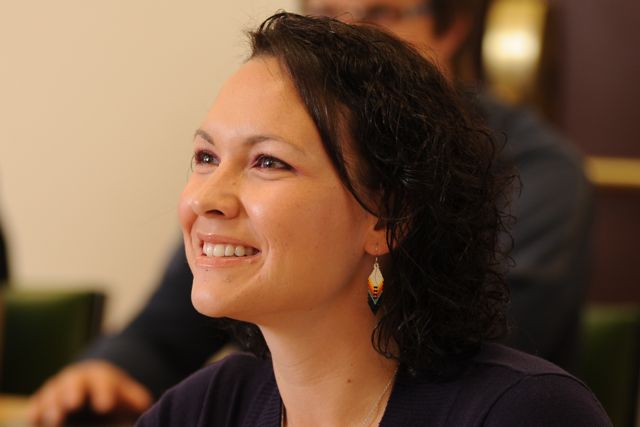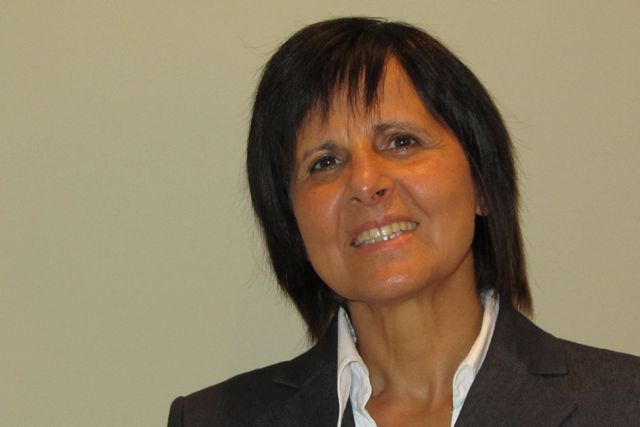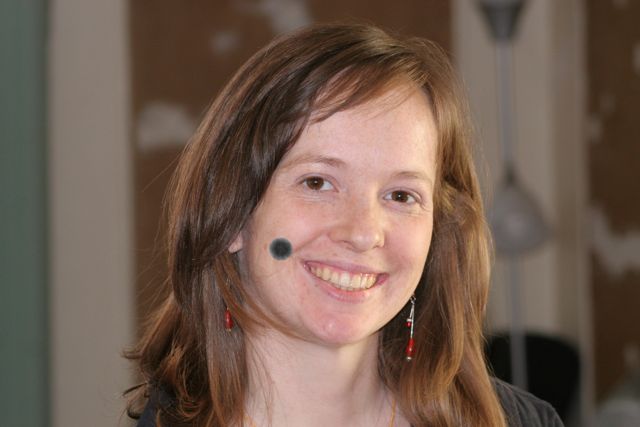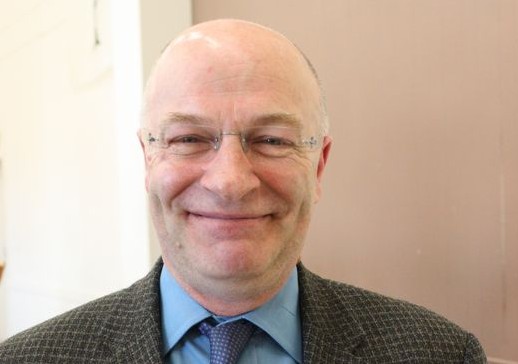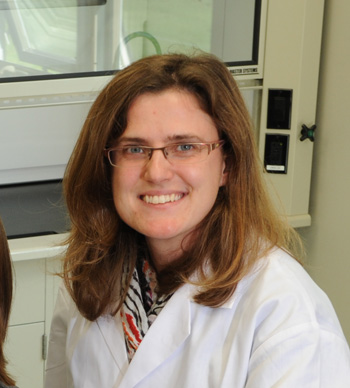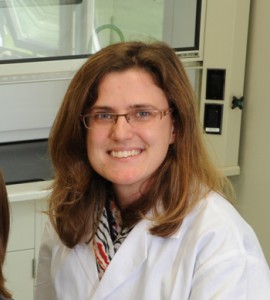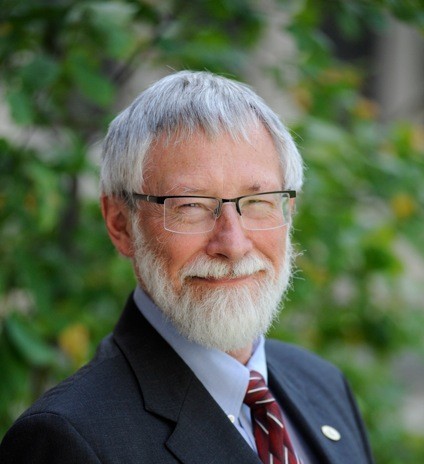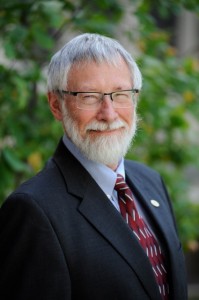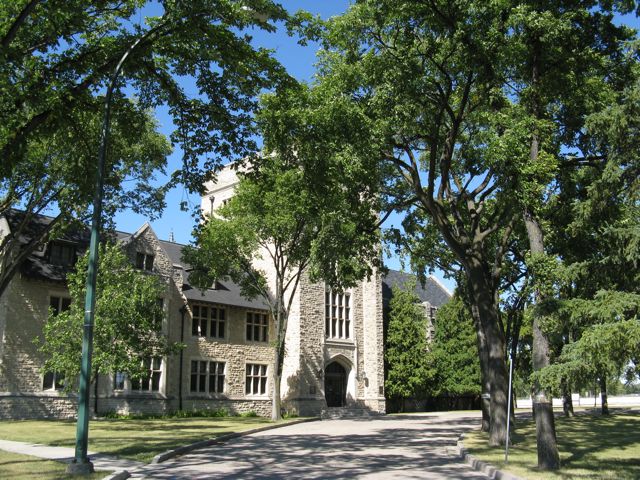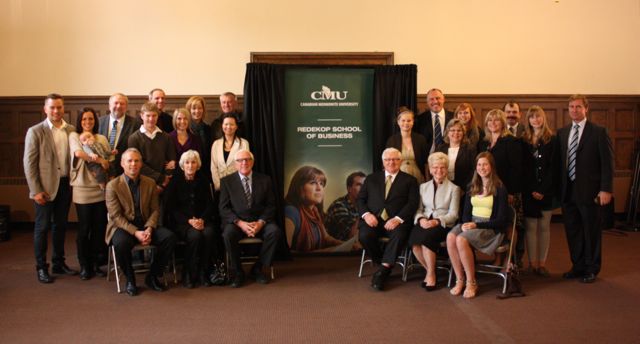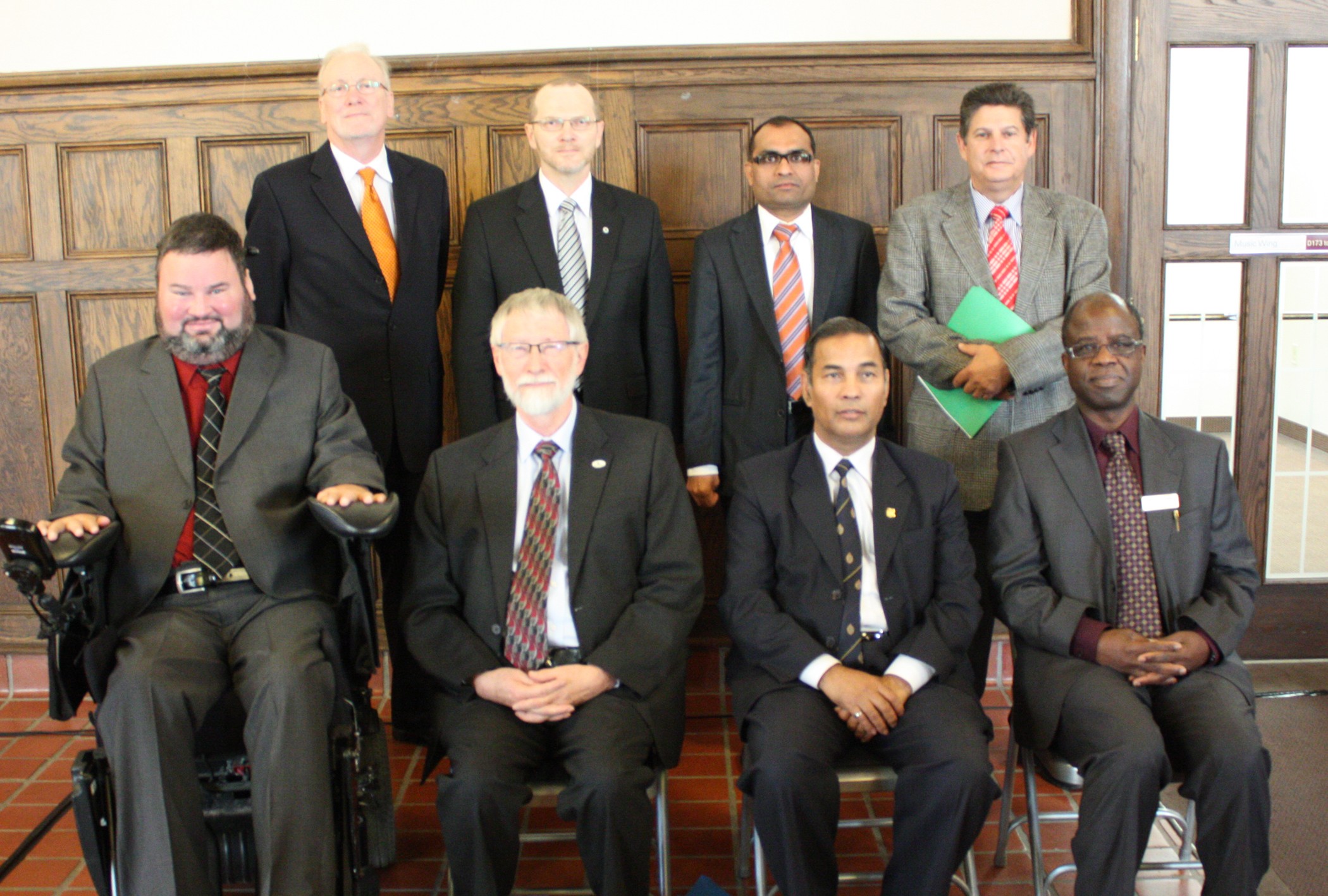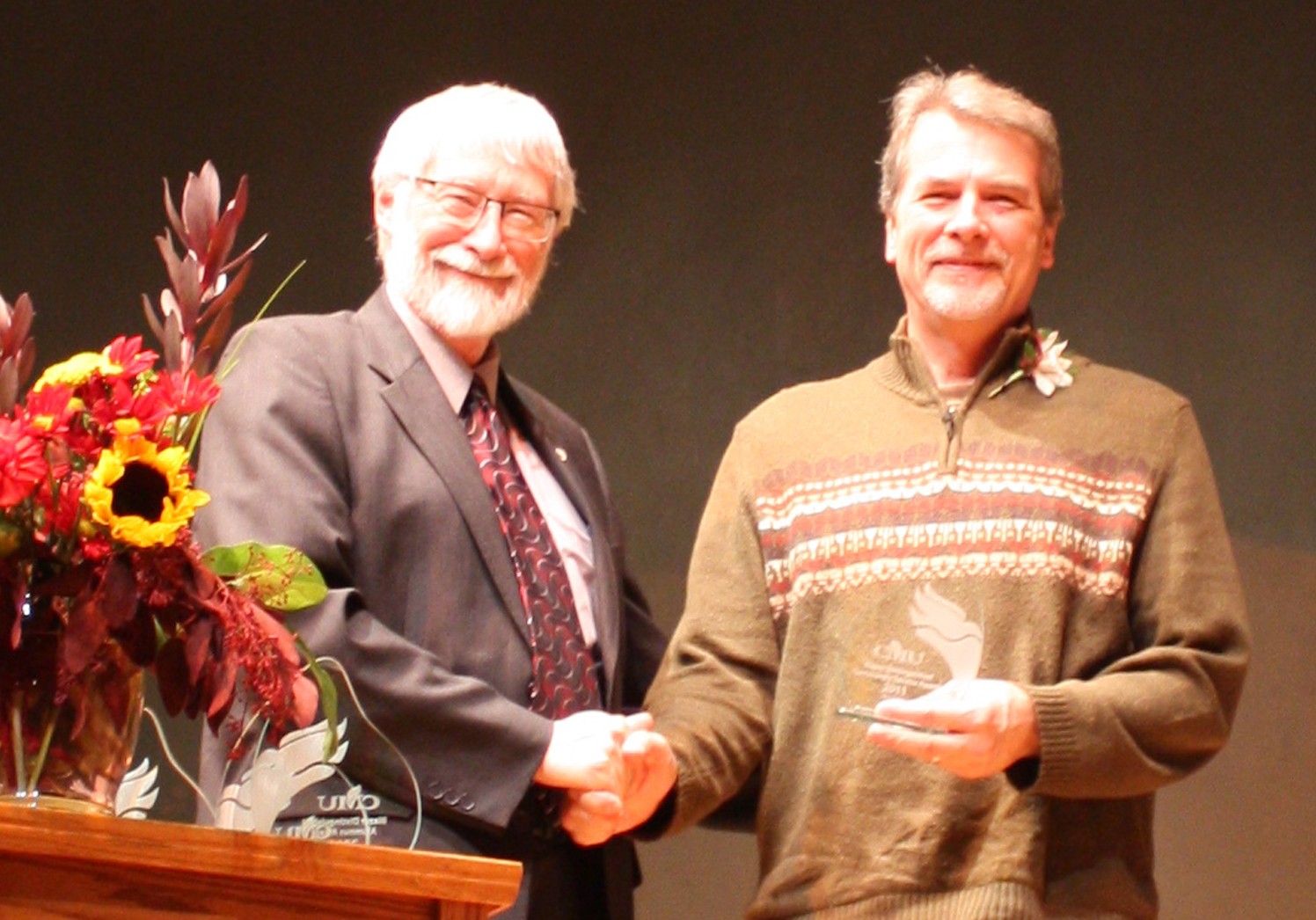September 30, 2011 – Canadian Mennonite University honours Ray Dirks as its 2011 CMU Blazer Distinguished Community Service Award winner.
Established in 2010, this award recognizes distinguished achievement and service within the broader community or church, through business, leadership, artistic, political, or volunteer contributions.
“We are delighted to recognize the dedication, achievements, and community service of artist, curator, photographer, and writer Ray Dirks,” says CMU President Gerald Gerbrandt. “He is a highly deserving recipient of this award. His images, writing, and exhibitions are known, admired, and loved by people around the world. I have been especially impressed with how he has worked with Winnipeg students using art as a way of teaching peacemaking. Through this award, we offer a gesture of appreciation for his artistry, his vision, and his commitment to bridging cultural divides and fostering respect, for all people, in all that he does.”
Dirks grew up in Abbotsford, British Columbia, graduated from Mennonite Educational institute in 1973, then studied commercial art and design at Vancouver Community College. He married Winnipegger Katie Reimer in 1977. The following year, the couple spent several months in Latin America, confirming Dirks’ interests in working across cultures.
In 1982, he and Katie accepted an assignment with Mennonite Brethren Missions and Services in the Democratic Republic of Congo where he worked primarily as an illustrator. “This resulted in a passion for ordinary folk and a lifelong pursuit, through my art and the art of others I promote, to reveal the decency and dignity of marginalized, stereotyped, misunderstood, forgotten people from around the world,” he says. “Honouring the fact we are all created in God’s image is central to my work. “
They returned to Canada in 1985, settling in Winnipeg. Dirks began doing freelance design work for ChristianWeek and MEDA. In 1990, wanting to counter stereotypes of Africa, he created an exhibition from four countries called Africa: Art of the People, sponsored by CIDA, Canadian Foodgrains Bank, MCC, and Canadian Lutheran World Relief, among others. The exhibit toured in the United States and Canada.
“Its success led to my bringing together Rise with the sun: women and Africa in 1995,” says Dirks. Sponsored by CIDA and its partners, including MCC, the exhibition featured 44 artists from 12 sub-Saharan countries. It toured across Canada, including to the Museum of Civilization, for three years, with Dirks giving presentations in schools across the country.
In 1998, the Mennonite Heritage Centre in Winnipeg became a fulltime gallery with Dirks as its curator.
Dirks says that his wish and prayer was twofold: that the gallery be a place that heralds artists from Mennonite churches as God gifted and that those gifts should be used and respected in the church; that the gallery be a place where all artists and people of goodwill could meet and get to know one another in a respectful environment, recognizing that Canada is an increasingly multi-cultural and multi-faith society.
In 2000, Dirks began bringing together the In God’s Image: A Global Anabaptist Family project. As with the gallery, he raised the budget through donations. The result was an internationally touring exhibition, opening in Zimbabwe to coincide with the Mennonite World Conference assembly in Bulawayo in 2003, and a book distributed around the world by MWC. In God’s Image featured art and stories and photographs of ordinary people of the church from 17 countries circling the globe. The exhibition toured in Africa, Europe, and North America.
Dirks spent four months in Connecticut in 2002 as artist-in-residence at the Overseas Ministries Study Center and a Research Fellow at the Yale University Divinity School. “I was invited because of my work as an artist approaching African subjects as people of dignity,” he says. While there, he had a solo exhibition at Yale University.
He was invited in 2006 by Menno Simons College and the Church of Christ in Congo to go to Kinshasa, Democratic Republic of Congo to cover the Congolese elections as a photographer. “I jumped at this opportunity to stand beside our Congolese Mennonite brothers and sisters,” says Dirks. His images were used in media in North America and Europe and by the United Nations.
Three years later, he served as photographer at the assembly of Mennonite World Conference in Paraguay.
Working as an artist and curator in approximately 30 countries around the world, Dirks has had solo exhibitions in Ethiopia, Cuba, India, the United States, and Canada. He has participated in exhibitions and workshops in Kenya, Sudan, Trinidad, Cuba, and the Netherlands.
Dirks has received recognition from a number of organizations, including in 2008 the Above and Beyond Award for the Arts from the Manitoba Foundation for the Arts, and the TEAL (Teachers of English as an Additional Language) Community Award.
Over the past few years, implementation of a school program called In the Spirit of Humanity, funded through The Winnipeg Foundation, has been a chief commitment. Hindu artist, Manju Lodha, Muslim artist, Isam Aboud, and Dirks joined in giving presentations to over 2,000 students across Manitoba, from grade one students to adults. A DVD and book are planned for the fall.
Noting that much of his work is across cultures and with artists of other faiths, Dirks says his Anabaptist faith and roots remain central to who he is. “I am currently working on the Along the Road to Freedom project which will result in a series of my paintings honouring the faith, love, suffering, and strength of Mennonite mothers who brought their children to Canada as refugees from Stalin’s horrors,” he says.
“I see my work with my own Mennonite story and the stories, lives, and art of others to be equally important, portraying and honouring all as created in God’s image, fortunate and thankful to God to be living in Manitoba, amongst Mennonites, Catholics, Jews, Hindus, Sikhs, Muslims, First Nations…”
Dirks is the second recipient of the CMU Blazer Distinguished Community Service Award. The inaugural award was made in 2010 to Altona citizen Ted Friesen.
Article Prepared by CMU, Based on Ray Dirks’ Autobiography

